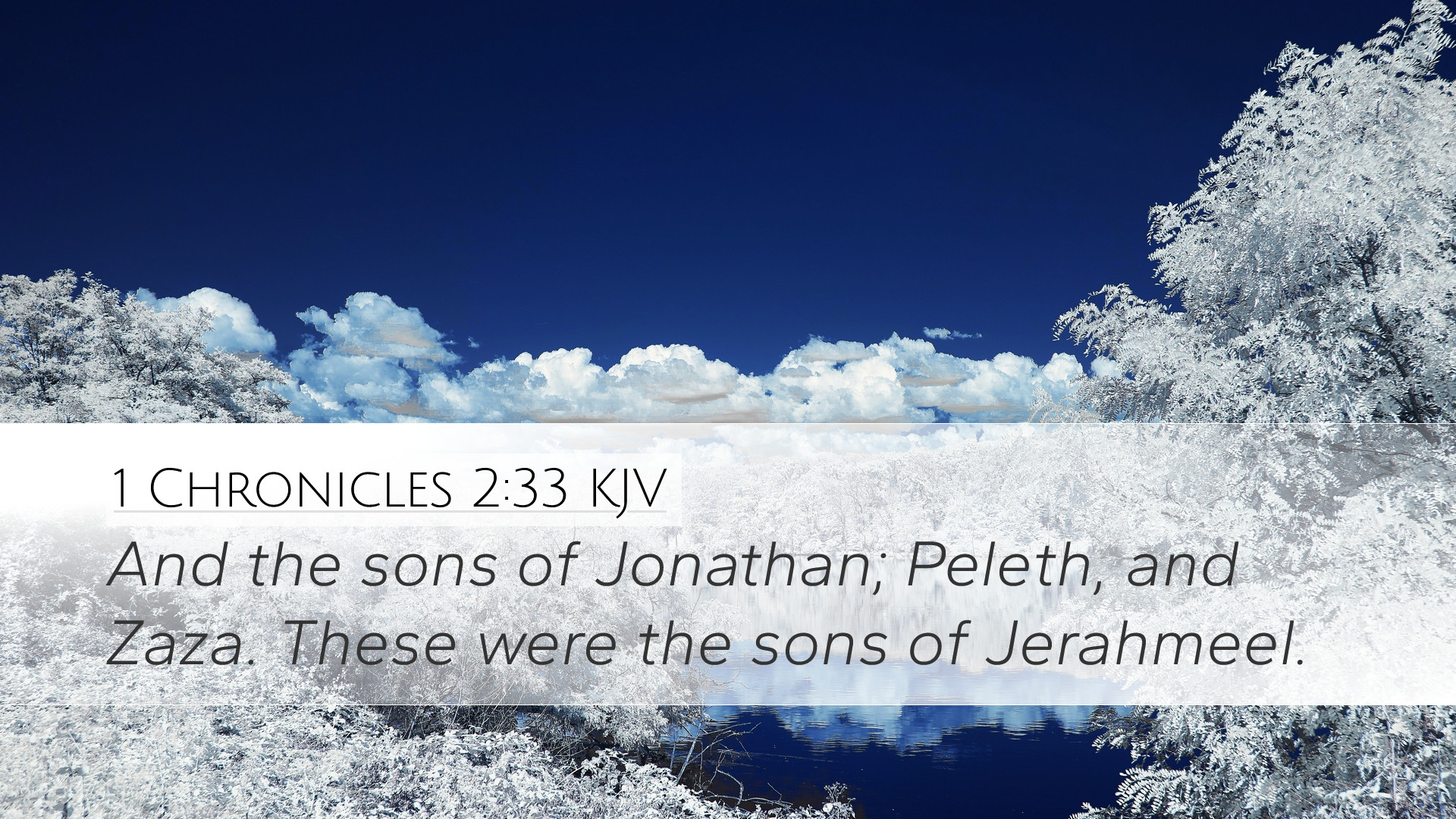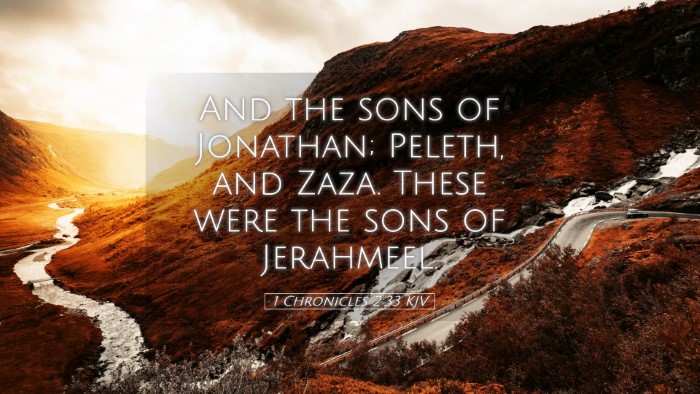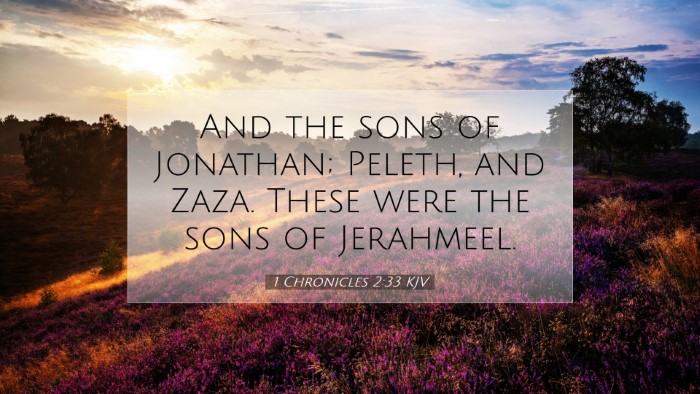Analysis and Commentary on 1 Chronicles 2:33
Verse Text: "And the sons of Jonathan; Merib-baal; and Merib-baal begat Micah."
Introduction
The genealogical records in the Book of Chronicles serve a significant purpose beyond mere historical record-keeping; they function to affirm God's covenant promises to His people.
In this verse, we encounter the lineage of Jonathan, the son of Saul, highlighting the continuing promise of God amidst the tumult of Israel's monarchy.
Contextual Background
The context of 1 Chronicles is primarily post-exilic, reflecting on the importance of lineage and priesthood.
Chronicles emphasizes God’s faithfulness to the descendants of Israel, even those who have suffered due to the consequences of sin and social upheaval.
The Significance of Genealogies
According to Matthew Henry, genealogies are not only records of lineage but also testimonies of God's mercy and sovereign choice.
They provide a foundation for understanding the fulfillment of His promises through specific individuals.
Jonathan's Legacy
Jonathan, the son of Saul, is portrayed as a faithful and noble character, embodying friendship and loyalty, particularly in his relationship with David.
His legacy, as captured in this genealogy, points to the enduring nature of covenantal faithfulness despite the dire consequences faced by Saul's house.
Analysis of Key Names
The verse introduces us to two critical names:
- Merib-baal:
This name, which means "the Lord contends," indicates a connection to divine intervention and justice.
Adam Clarke notes that it represents a continuation of the lineage from Saul, symbolizing God's persistence in preserving this family line despite its checkered past.
- Micah:
The name Micah, which means "who is like Yahweh," underscores the greatness of God in His dealings with humanity.
It hints at a possible prophetic lineage, indicating that Micah could be a future instrument for God’s purpose among His people.
Theological Implications
This verse invites theological reflection on God's redemptive plan through flawed individuals and families.
Albert Barnes emphasizes that this lineage serves as a reassurance that God remains true to His word and will work through individuals to accomplish His purposes, regardless of the circumstances.
Covenant Faithfulness
The theme of covenant faithfulness is central in the narratives surrounding Jonathan's lineage.
God's ability to bring forth grace through Jonathan’s descendants exemplifies how the divine purpose unfolds through human history.
Human Agency and Divine Sovereignty
The tension between human choices and divine sovereignty is illuminated in this genealogy.
Despite the failings of Saul and the royal house, God's plan prevails through the line of Jonathan, inviting scholarly dialogue about the interplay of human action and divine providence.
Application for Today
For contemporary readers, especially pastors and theologians, this genealogical insight underscores the importance of embracing our identities as part of God's larger narrative.
It encourages believers to recognize their heritage in faith and the significant role that personal and communal legacies play in proclaiming God's story.
Encouragement for Congregations
Pastors may find this passage particularly encouraging to convey to congregations the importance of every individual within the body of Christ.
Just as Merib-baal and Micah represent choices steeped in God’s providence, so too do modern believers have a unique contribution to God’s ongoing narrative.
Conclusion
In summarizing the reflections from public domain commentaries, 1 Chronicles 2:33 stands as a profound reminder of God's commitment to His people,
His ability to produce hope amidst despair, and the significant narrative potential within every lineage.
As scholars engage with these themes, they are encouraged to explore the depths of God’s grace and the complexities of human history as detailed in scripture.


